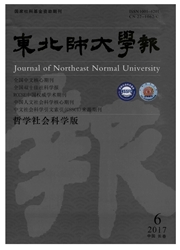

 中文摘要:
中文摘要:
伴随着中国金融改革进入攻坚阶段,金融改革的顺序选择成为广泛讨论的问题。关于这一问题,目前存在着顺序论、并举论、倒逼论三种观点。政府、学术机构和金融机构,不同机构对这三种观点是否存在系统性的认识差异?而不同所有制性质的金融机构,在这个问题上是否也存在系统性的认识差异?这些问题的分析,将有助于我们了解当前社会各界对金融改革顺序的认识现状,进而有助于理解中国未来金融改革的方向。基于问卷调查的结果显示:顺序论和并举论的支持者占全部受访者的90%,对金融改革顺序的分歧也主要发生在这两者之间。使用逐步回归法进行分析,结果进一步显示:政府机构更倾向于支持并举论,研究机构和国有金融机构支持顺序论,而外资机构更不倾向于顺序论。以上分析结果具有稳健性。
 英文摘要:
英文摘要:
With China's financial reform entering vital stages,how to choose the procedures and orders of the reform has become a widely discussed issue.There is still no unanimous understanding on this issue yet.There exist three different opinions:developing in order;developing simultaneously;developing reversed-coercively.Is there any understanding divergence on these three opinions existing in government,academic institutes,financial institutes and other organizations?And do financial institutes of different ownership system have different understandings?The analysis of these issues will help us know about the status quo of our society's understanding of the financial reform order.Based on questionnaire data,we conducted some analysis using stepwise regression algorithm.The result is that,there are 90% subjects supporting either developing in order or developing simultaneously,therefore forming the major divergence holders.Further results show that the government and some research institutes favor developing simultaneously.Most national financial organizations prefer developing in order while foreign companies prefer not to develop in order.The above results all possess stability.
 同期刊论文项目
同期刊论文项目
 同项目期刊论文
同项目期刊论文
 期刊信息
期刊信息
